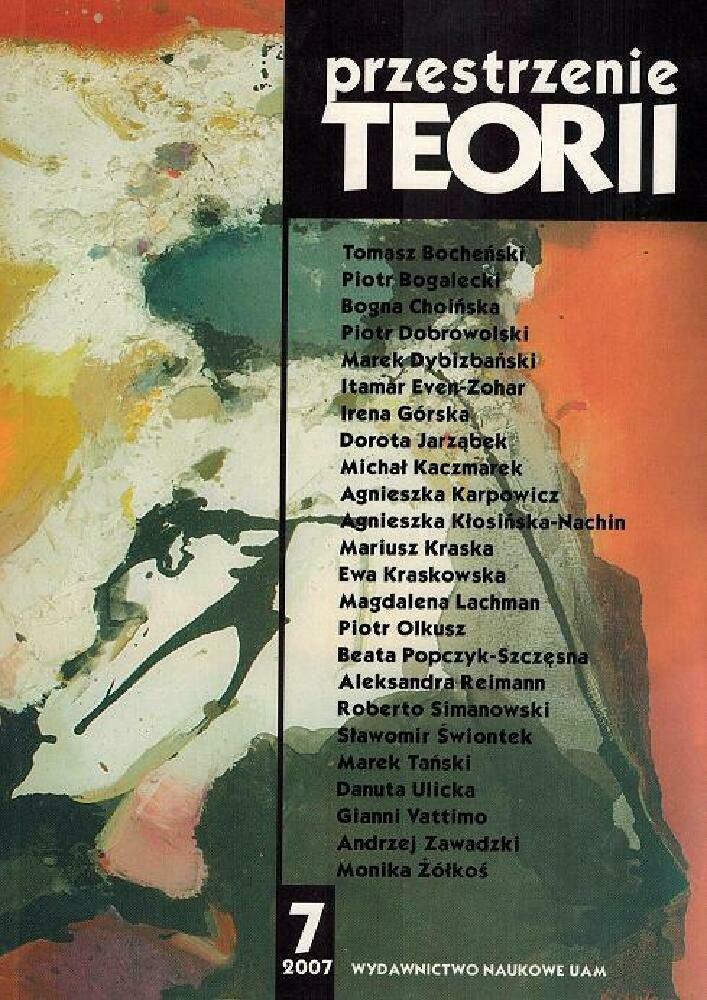Abstrakt
The aim of this article is to demonstrate close links between 'experience' as an epistemological notion and 'femininity' as a gender concept. Experience is considered here within two dichotomies: experience - reason; and experience - innocence. They are traced here mainly in the writings of Rousseau, Wollstonecraft, Krasicki, Mickiewicz, Blake and American Transcendentalists. Both dichotomies constitute an essential part of the Enlightenment and Romanticism thought, art and lifestyle. In particular they construct the code of sensibility, which highly influenced the 18lh and 19,h centuries aesthetics, spirituality and philosophy. As a result of the cult of sensibility in Western culture there appeared a peculiarly gendered figurę - that of a sensitive man, a feminized małe, capable of experiencing and showing strong emotions. By connecting maleness with features usually perceived as typically feminine, the latter gained higher cultural status. The counterpart for the sensitive man was a reasonable woman, a female person endowed with traditionally masculine intellectual capacities. The discourse of experience has a special meaning in William Blake's work and thought; here it is related to his anti-rationalist and antiscientific worldview, as well as to his apotheosis of Innocence as the State of elear insight into the true reality - one that is hidden behind the visible world. From Blake, via European Romanticists and American Transcendentalists it is possible to draw links to contemporary counterculture, environmental movements and theories (eco-criticism, eco-feminism) with their appreciation of soft feminine values.Licencja
Autorzy
Autorzy tekstów przyjętych do publikacji w czasopiśmie „Przestrzeniach Teorii” są zobowiązani do wypełnienia, podpisania i odesłania na adres redakcji umowy o udzielenie nieodpłatnej licencji do utworów, z zobowiązaniem do udzielania sublicencji CC.
Zgodnie z umową, autorzy tekstów opublikowanych w czasopiśmie „Przestrzeniach Teorii” udzielają Uniwersytetowi im. Adama Mickiewicza w Poznaniu niewyłącznej i nieodpłatnej licencji oraz zezwalą na użycie sublicencji Creative Commons Attribution-NonCommercial-NoDerivatives 4.0 International (CC BY-NC-ND 4.0).
Autorzy zachowują prawa do dalszego, swobodnego rozporządzania utworem.
Autorzy, którzy wykorzystują w swoim tekście cudze utwory (np. ilustracje, fotografie) proszeni są o dostarczenie do redakcji czasopisma zgodę na publikację od uprawnionych podmiotów.
Użytkownicy
Zainteresowani użytkownicy internetu uprawnieni są do korzystania z utworów opublikowanych po 2015 roku „Przestrzeniach Teorii” tylko w calach niekomercyjnych, pod następującymi warunkami:
- uznanie autorstwa - obowiązek podania wraz z rozpowszechnionym utworem, informacji, o autorstwie, tytule, źródle (odnośniki do oryginalnego utworu, DOI) oraz samej licencji;
- bez tworzenia utworów zależnych - utwór musi być zachowany w oryginalnej postaci, nie można bez zgody twórcy rozpowszechniać np. tłumaczeń, opracowań.
Do wszystkich tekstów opublikowanych przed 2015 r. prawa autorskie są zastrzeżone.
Inne
Uniwersytet im. Adama Mickiewicza w Poznaniu zachowuje prawo do czasopisma jako całości (układ, forma graficzna, tytuł, projekt okładki, logo itp.).
